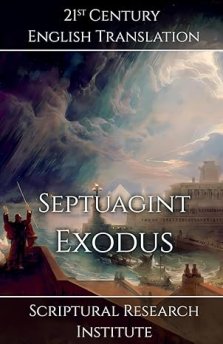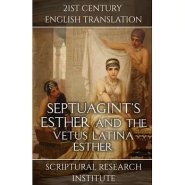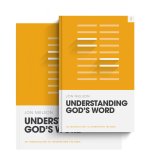In addition to the two copies of the Book of Esther found in the Septuagint manuscripts, there are two additional surviving copies of the Book of Esther, one is found in the Masoretic Texts, while the other is found among the Vetus Latina manuscripts. The Masoretic Texts are the Hebrew translations of the ancient Israelite and Judahite books that form the core of the modern Tanakh which is used by Rabbinical Jews, while the Vetus Latina manuscripts are the Latin translations of the ancient books that were made before Jerome's official Latin translation of the Orthodox Christian Bible, published circa 405 AD. Each of these texts is unique, however, all appear to derive from earlier Aramaic texts.
The oldest surviving physical copy of Esther is found in the Codex Vaticanus, which dates to circa 350 AD. The version of Ether in the Codex Vaticanus is generally accepted as being the original version added to the Septuagint sometime in the 2nd century BC, however, it claims to have not been translated in Alexandria, like the rest of the Septuagint.
The next oldest version of Esther that survives is in the Leningrad Codex of the Masoretic Texts, with is dated to circa 1008 AD. This version is in Hebrew, and is the only one of the three copies that does not appear to have once been in Greek, and it is the only one of the three copies that does not mention God. This version was copied as part of the Masoretic Texts between the 7th and 10th centuries AD. With many Masoretic Texts, there are precursors found among the Dead Sea Scrolls, however, there are no known fragments of Esther found among the Dead Sea Scrolls to date. It is unclear where it originated, or why there is no reference to God in it.
The Vetus Latina's version of Esther is one of the books not translated from either the Septuagint or proto-Masoretic versions of Esther, and therefore, is the fourth primary source for the Book of Esther. Dating the Vetus Latina is more difficult than the Septuagint, as it was the work of many individual translators over several centuries. The bulk of the work is believed to have been done between 330 BC and 50 AD by Judeans living within the expanding Roman Empire, however, around 50 AD the Latin-speaking Christians began using the texts as well. After Jerome translated the Vulgate bible, published in 405 AD, the Vetus Latina continued in use alongside the Vulgate in the Catholic countries until the 1300s. While the Vetus Latina is by nature a Latin translation of the ancient Israelite scriptures, the translations were generally made from existing Greek translations, and in the case of the Book of Esther, not from either the Vaticanus or Alpha versions.
Trustpilot











